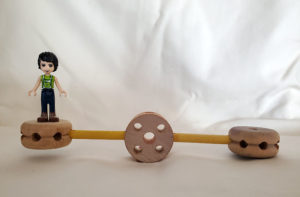 Feb 21, 2024–When someone asks you out for coffee, the first question that should come to mind is, “What’s in it for me?”
Feb 21, 2024–When someone asks you out for coffee, the first question that should come to mind is, “What’s in it for me?”
Sound cynical?
Why? Whether you are aware of it or not, every interaction between two people is a transaction. To be productive, it has to be. Because if both parties don’t get something out of it, why do it?
You can prove this is true simply by considering the obverse.
In any relationship, if either partner only “gives,” they soon have nothing left to give.
If either partner only “takes,” soon no one wants to interact with them.
Now we’ll pause a moment while you run through your roster of acquaintances. I’m sure you can quickly drop people into each category. Including yourself, which I assume you will place in the “giving” column, because we all think we are givers.
But in reality, at different times, we all fall into both of these categories.
“Takers” rob your attention, your time, your resources, and ultimately your energy. There is nothing more wearing than being in the presence of someone who talks only about themselves, recites stories from their past, harangues you with their political views, or tells you jokes you’ve already heard.
“Givers” can be just as draining, always hovering, trying to help when you don’t need help, and often reminding you how much they are giving. “Martyr” is not an attractive label when self-applied.
The goal is to be an “exchanger.”
If someone wants to meet with you, ask them two questions:
What do you want from me? What will you give to me?
If either question is unanswered, decline. If, on the other hand, you stand to gain something back–perhaps insight or intrigue or income–then be there.
This sounds callous and calculating. But it is based in timeless truth.
During the development of Reiki, the field of healing with energy from the universe, one of the basic tenets founders created was requiring a fee for the service. They believed that all interactions involve an exchange of energy. One wrote that he even tried to help alleviate suffering as his gift to strangers, but when he returned weeks later, the recipients of his healing gift had lapsed into old habits. Only when an equivalent payment was made, did the treatment work.
Jim Fay, an educator and founder of the Love & Logic method of productive parenting–a model I heartily recommend, by the way–described his dilemma in making the world a better place.
Fay describes a scenario we have all experienced–waiting in the grocery store checkout line and seeing a parent mishandle the misbehavior of their child. Let’s say a toddler is throwing a tantrum, screaming for candy.
Fay has stood in that line. He said he wanted more than anything to tap that parent on the shoulder and ask if they would like to learn a few simple techniques to handle that situation productively. And he actually had tried doing that. But he discovered that such well-meaning help would not be welcomed. In fact, it would be resented. And the child would suffer more, for drawing unwanted attention and making the parent look less competent.
How sad. Help is all around us, and we refuse to accept it, or are reluctant to give it. Next time you interact, first observe whether you are giving or taking. Then figure out how to make it an exchange.